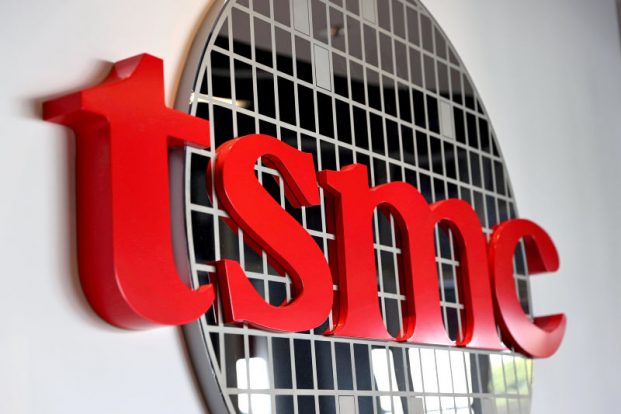The world’s top chipmaker, TSMC, informed the US this month that Chinese tech giant Huawei had got around US export controls and used a chip it sent to another customer in a new AI accelerator.
Sources have confirmed that Taiwan Semiconductor Manufacturing Company alerted US officials after research firm TechInsights told the company a teardown of Huawei’s Ascend 910B revealed the TSMC chip within a multi-chip AI accelerator, Reuters said on Wednesday.
The Ascend 910B is one of the most advanced AI chips from a Chinese company. TechInsights informed TSMC before publishing its findings in a report and that prompted the Taiwanese firm to notify the US Commerce Department two weeks ago, one source said.
ALSO SEE: Chinese Media Cut Reports on ‘3nm Chip Designed by Xiaomi’
TSMC told US officials that a customer placed orders for a chip similar to Huawei’s Ascend 910B, a processor designed for large language model training, a Financial Times report said last week, citing people familiar with the matter.
The chipmaker has now suspended shipments to the customer after discovering one of the chips supplied to the client ended up in a Huawei product, a Taiwan official familiar with the situation told Reuters.
About two weeks ago, TSMC suspended shipments to the client and began a detailed investigation, the trade and economic official said, speaking on condition of anonymity given the sensitivity of the situation.
The official said the drama was an “important warning event” to TSMC. The official did not identify the client TSMC had cut off. TSMC declined to comment.
Proxy company seen buying chips for Huawei
The revelation shows how difficult enforcing export controls can be for regulators and companies making highly desired products such as AI accelerator chips. It also shows Huawei’s sustained need for the most sophisticated chips.
It suggests proxy companies have sought to purchase chips from TSMC on behalf of Huawei.
TSMC said in a statement on Monday that it reached out to the Commerce Department about the matter. It said it had not supplied chips to Huawei for four years – since mid-September 2020.
“We are not aware of TSMC being the subject of any investigation at this time,” the company said.
News emerged late last week that the US Department of Commerce was investigating if TSMC manufactured AI and smartphone chips for Huawei Technologies.
Huawei was placed on a US trade-restriction list in 2019 for national security purposes.
The report by TechInsights has yet to be published and the company, based in Canada, declined to comment.
Huawei denies chip deals with TSMC since 2020
Huawei, which has its head office in Shenzhen, said in a statement it has not produced any chips via TSMC after the implementation of the US rules in 2020.
Currently, it is unclear how the chip made its way to Huawei. In 2019, the company released its Ascend 910 chip series. At that time, prior to export controls, the chips (a precursor to the 910B) were produced by TSMC. Huawei is believed to have stockpiled TSMC chips and put 5nm TSMC chips in a laptop it released last year.
The Biden Administration restricted the export of high-end AI chips to China two years ago, saying it needed to limit the Chinese military’s access to advanced chips.
A crucial element of export controls is a rule prohibiting global chip manufacturers from utilizing US technology or equipment to produce chips intended for Huawei or its products.
In recent years, the US has escalated its use of export controls, aiming to thwart Chinese companies from obtaining, designing, or manufacturing advanced semiconductors. Huawei has been a primary target of these efforts.
Last year China’s biggest chipmaker, Semiconductor Manufacturing International Corp (SMIC) produced a 7-nanometre chip for a smartphone made by Huawei, which proved very popular domestically. But US officials questioned the quality of the chip and SMIC’s ability to mass produce them.
Analysts point fingers at Huawei
Analysts who discussed this issue with Eurasia Group this week said: “A violation by TSMC would be legally risky – and a massive business mistake given the company’s closeness with the US and other Western nations it relies on. But the experts who spoke with GZERO are skeptical this is the case.”
In a note from GZERO on Wednesday, Xiaomeng Lu, Eurasia Group’s director of geo-technology practice, said the big question is whether Huawei got restricted chips from TSMC through illegal channels.
“If Huawei is doing that, which is a more geopolitically significant development than potential TSMC misconduct – and TSMC proves they are following all US rules and regulations, Huawei should be the one receiving severe penalties. And I am almost certain they will.”
Meanwhile, the Commerce Department said in a statement it is “aware of reporting alleging potential violations of US export controls,” but could not comment on whether any investigation is ongoing.
“We maintain a robust and comprehensive export system for monitoring and ensuring compliance,” TSMC said in its statement.
Taiwan’s government, which has its own tough rules in place to stop advanced chips being produced in China, has repeatedly said it will ensure Taiwanese tech companies follow US rules.
“We will have full communication with the company,” Economy Minister Kuo Jyh-huei told reporters in Taipei on Wednesday, without elaborating.
The market capitalization of TSMC, which accounts for over 90% of the world market for advanced chips, passed $1 trillion for a second time last week.
On Wednesday the firm’s Taiwan-listed shares were down 1.4%, after its US-listed shares fell 1.5% on Tuesday.
- Reuters with additional input and editing by Jim Pollard
NOTE: The headline and content of this report was updated on October 23, 2024.
























